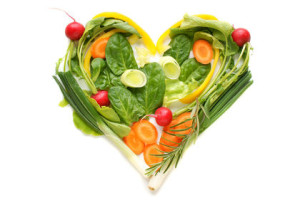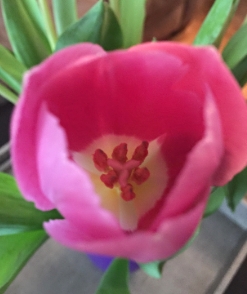Spring Cleaning: Is Your Nutritional Cleanse Worth It?
 When it comes to spring cleaning, many yogis and health conscious people jump on the first juice cleanse or herbal detox they find. But:
When it comes to spring cleaning, many yogis and health conscious people jump on the first juice cleanse or herbal detox they find. But:
- Are cleanses and detoxes actually good for you?
- Are they necessary?
It makes sense that while you are cleaning out your closet, purging drama and negativity, and creating space for reflection (yoga retreat anyone?) that you would want to make sure your insides are cleaned out too.
In theory this makes total sense, but when it comes to extreme cleansing and detoxing, most people I know are not set up to do it in a way that is truly healthy, and today I want to share with you an alternative to the common cleanse.
My deeper education in nutrition began while in school for Chinese Medicine. Our program placed a lot of importance on understanding both the Western Medicine knowledge of what makes up the food we eat, as well as the traditional Eastern therapeutic applications and energetics.
Here are a few highlights from that education that you may want to consider before you embark on a more extreme cleanse.
1. In Chinese Medicine the idea of a cleanse or detox is usually reserved for someone whose digestive system is deeply impaired in a specific way. Basically, if you have regular bowel moments that are well formed with no pain or strange activity you get to keep eating food! In fact, things like raw juice cleanses or water fasting can upset the otherwise harmonized digestive organs according to Chinese Medicine theory.
2. There are no one-size-fits-all cleanses. Chinese Medicine looks at the whole picture of a persons life and health. An unsupervised cleanse kit no matter how high quality the product may be cannot predict how certain nutrients will react and be absorbed in your system. Something that worked like a charm for your best friend may have you running for the bathroom or laying in bed for days on end.
3. If you decide to throw these ideas out the window and do a big cleanse anyway, for your own health, safety and sanity, rest more than you think you should. I know of a yoga student who decided to do a cleanse while taking part in a 30-day yoga challenge. She works full time and has a busy social schedule. She is also a Hot Power yoga enthusiast, but didn't think to modify her practice or (heaven forbid) take only gentle hatha classes during her 5 day juice only cleanse.....until she fainted in class. Please please please, if you decide to do a fast for any reason, health, spiritual or just to see what it's all about, be smart and give yourself time to rest, hydrate and never push your physical, mental or emotional boundaries.
Finally, if you really want to experience a more extreme cleanse (I will never understand why, because I like eating) I highly recommend working with a qualified practitioner who has an education in nutrition to guide you through. Books and friends who have read a lot of books are a fantastic resource, but in my opinion the assistance of an expert in safe cleansing is a must.
What Can You Do Instead?
If you have decided to join me in skipping out on the skipping of meals, the question remains, how can you break some of the less desirable habits in your diet and get that fresh springtime feeling?
My preferred method is a 7-10 day Nutritional Recalibration.
During this span of time, you will eat very simply and give your system a rest. Try to avoid:
- Processed sugar
- Animal products: meat, fish, eggs, all dairy etc.
- Gluten: wheat products, bran, couscous, barley, malt, rye (bread, pasta, pastry etc.)
- Processed food: anything with a chemical additive (which usually means anything packaged in a box, bag or can)
- Caffeine, Alcohol, Recreational Use drugs/ Cigarettes (if you have severe caffeine withdrawal, limit your intake to a single cup of coffee or tea per day)
During the Recalibration:
1) Stop grazing: if you find yourself hungry between meals, ask yourself if you are actually hungry or just bored, take sips of water (dehydration often masks itself with feelings of hunger). If after consideration you still feel hungry have a light snack.
2) Drink water often.
3) Pay attention when you eat (don’t watch TV, check emails, read or have involved conversations over meals) and stop multitasking at mealtime.
4) Exercise daily. Do at least 15 min of gentle exercise per day.
6) Don't eat past 7 or 8pm if possible.
It may sound simple, but you will need to be creative (and you may find yourself a bit bored without your daily added salts, sugars and flavours). Most importantly, feel free to modify to suit your lifestyle demands because being conscious is better than nothing at all. Even if you just eliminate one of the items above for a week, you will learn something if you pay attention to your body.
If you decide to recalibrate, why not share some of your meal ideas below in the comment section? Tell us what you are eating and how you feel.




